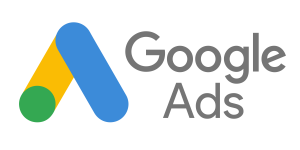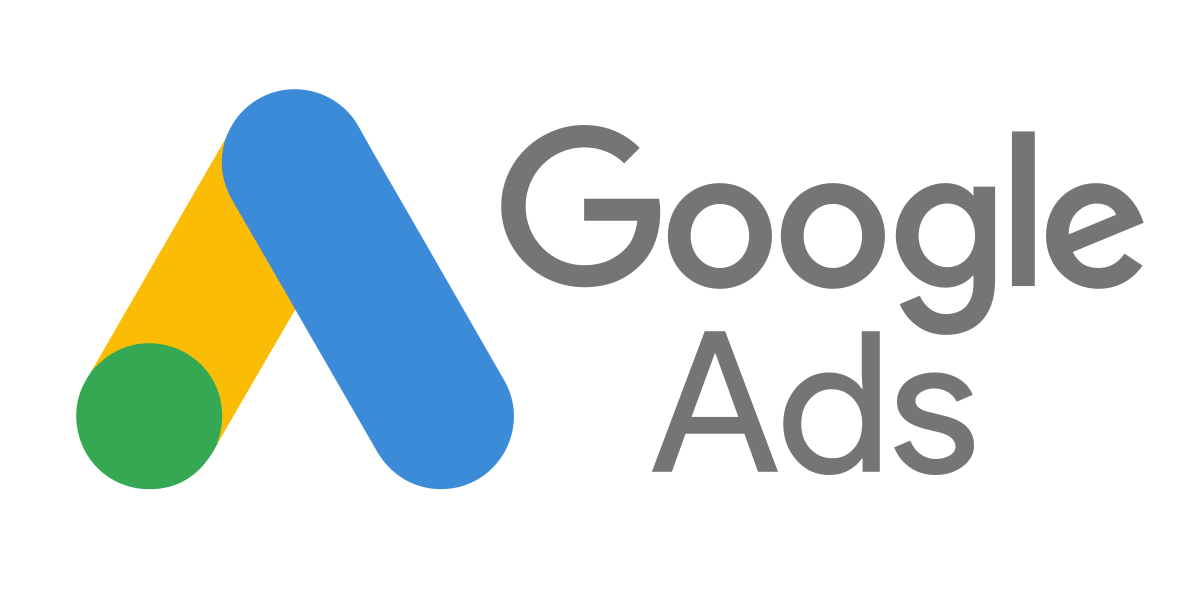 Five Common Google Adwords Mistakes to Avoid
Five Common Google Adwords Mistakes to Avoid
Many small businesses or sole traders, in keeping costs low, self manage their Google Adwords and PPC Marketing but in doing so they are often exposed to Five Common Google Adwords mistakes to avoid.
The Adwords budget and the possible return on investment simply may not be sufficient in value to warrant the hiring of an Adwords Professional. As such, for people with Google Adwords budgets under £100 a week, this post can hopefully given you some tips on how to better self-manage your campaign.
The Five Common Google Adwords Mistakes to Avoid
- Not Using Geographic & Device Targeting
- Unrestricted Use of Broad Keywords
- Not Using Negative Keywords
- Not Using Conversion Tracking
- Auto-applying Campaign Recommendations
Common Google Adwords Mistake to Avoid Number One – Not Using Geographic & Device Targeting
The Context
Most sole-traders and small businesses will have a relatively small catchment area for their businesses. From the Locksmith in Liverpool to the Solicitor in Slough, there is a geographic limit to how far the business will supply its services and how far a customer will travel or will consider a supplier of a service they are looking to acquire.
Similarly, if you want to target inbound phone calls to your business, from your Google Ads, then you should restrict the display of ads on devices that cannot make phone calls.
The Issue
As with most things in respect of Google Ads, there are many things that unless you tell Google not to display your ads for irrelevant searches, it will open the flood gates and display your ads which put simply, wastes your budget on clicks that are from people that will never engage with your business.
The Fix
If you are a Locksmith in Liverpool then you can set your geographic settings to either a radius around your location, or you can select from postcodes, upwards to include more expansive areas and regions right the way up to counties and countries.
In addition to targeting the postcodes, areas, towns, cities and counties you want best practice is to add places you do not wish to have your ads shown in what Google refers to as ‘Excluded Locations’
Common Google Adwords Mistake to Avoid Number Two – Unrestricted Use of Broad Keywords
The Context
Whilst you can target Exact keywords and Phrase Match keywords, you can also (as the name suggests) cast a wider net and use Broad keywords.
Whilst this sounds like a good way to increase your target audience, the unrestricted use of Broad keywords is the quickest way to waste through your budget.
The Issue
Let us use the example of a ‘Life Coach’ who offers coaching on careers, time management and self development and whom uses the Broad keyword “Life coach”.
Google Ads takes those two words and then opens the floodgates, not just to show the ads for the following relevant searches:
hire a life coach
do I need a life coach
how much does a life coach cost?
But also the following, irrelevant searches:
hire a coach
self drive coaches
national express coaches
what is the meaning of life?
The Fix
Prior to July 2021 you could use the broad match modified (BMM) keyword targeting so that you could have your ads only shown where the search phrase included all your words, e.g. “life+” and “coach+” so that the irrelevant ones listed above would no longer apply.
However, since July 2021, Google thinks its ‘Machine Learning’ is sufficient to not need the broad match modified (BMM) keyword targeting feature which has now been phased out.
In practice however, there are still vast targeting issues in using Broad keywords and its a shame that Google (in removing broad match modified (BMM) keyword targeting) has only benefited itself and removed a valuable tool in optimising your keywords.
The best practice fix for this is to now use negative keywords to counteract the irrelevant keywords when using Broad keywords, if you have to use Broad keywords.
Common Google Adwords Mistake to Avoid Number Three – Not Using Negative Keywords
The above fix for using negative keywords to counteract the irrelevant keywords when using Broad keywords now lets us explore this feature in more depth.
The Context
Now that Google Ads has sought to broaden the reach of its keyword targeting to increase the advertisers reach whilst at the same time making more money for Google, the expanded reach of your ads and keywords comes with the added issue of poor relevance.
Again using the Life Coach example, if Google’s algorithms and Machine Learning were adequate then Google should be able to infer that someone looking for a ‘life coach’ is certainly not going to consider booking a coach ticket for travel. Yet this is a real world example and evidenced first hand.
The biggest mistake an advertiser can make is assuming that ‘Googles knows best’. It simply doesn’t understand context in the way you as a small business advertiser understand the context and nuances of your business and you will have run through your budget long before Google has ‘machine learned’ context as it applies to you.
The Issue
Again using the Life Coach example and not using Broad match keywords but either Exact match and Phrase match you would assume Google wouldnt make the connection from hiring a ‘life coach’ and booking a ‘national express coach to London’ and you would be correct.
However, in using Phrase match for ‘Life Coach’ Google will still target the following relevant searches:
hire a life coach
do I need a life coach
how much does a life coach cost?
But now, whilst not targeting the absurd such as coaches for travel, Google will still display the life coaching ads for the following
life coaching books
life coaching jobs
life coaching career
life coaching courses
life coaching films
how much can I earn as a life coach?
For someone supplying ‘life coaching’ services the above searches would be wasted as they are more focused on people researching the industry for work, rather than as a potential customer and again, in this regard, Google doesn’t understand the context between the two.
The Fix
Put simply, if you are not using Negative keywords to enhance the relevance of your keyword targeting, in removing irrelevant keywords that can be matched or paired with your target keywords you are simply paying Google to waste your budget.
Whilst there will be unique keywords that should be negative keywords for your specific business and industry there will also be some very common ones so look at the search terms Google has shown your ads for and think logically and methodically about what other search terms could you target words be used in, that would not be relevant to your business.
Best practice in this regard is to have a master list of negative keywords that covers the more generic themes (as ‘books,’ ‘jobs,’ ‘courses’ etc) and apply this master list to all your campaigns with the terms or phrases that you don’t want your ads to be triggered for.
Then by regularly checking your search query reports on a weekly basis you can be sure that you’re not wasting any spend on search queries that you don’t want your ads to appear for and that by doing this practice weekly, that you make the task manageable and frequent.
Common Google Adwords Mistake to Avoid Number Four – Not Using Conversion Tracking
The Context
When using Google Ads you need to be able to identify what keywords are working for you and which ones are not.
You need to be able to match the performance of your Google Ads campaigns and the desired outcomes of why you started the pay-per-click campaign in the first place.
The Issue
Whether you are using Google Ads for ecommerce, off-line retail, to drive people to your App or your website, or to get inbound sales calls, unless you create a ‘conversion action’ and then track it, you will never be able to figure out which ad clicks are delivering profit and which are not working for you.
While it may be a desired outcome for you to drive traffic to your App or website, a pageview from an ad click doesn’t mean that every pageview should be a conversion as put simply, not every visitor to your website ends up being a customer.
Pageviews are easily tracked with existing metrics within in Google Ads or pageviews in Google Analytics.
A conversion is the desired outcome such as a sale on your website, a completed enquiry form or a call to your business that led to a sale. By knowing which clicks led to the desired actions you want you can then target more of the same and improve your cost per conversion.
The Fix
By implementing Conversion Tracking you are telling Google to track the entire journey from click to outcome, be that outcome a phone call that led to a sale or a completed online enquiry form.
By tracking each and every visitors journey from the click to what to class as a ‘conversion’ you are then able to properly track campaign performance.
Some conversion tracking can be done within Adwords, just using the available reports and tools whereas others may require someone with technical skills to implement a tracking code into your website but overlooking this is a wasted opportunity to maximise your return on investment.
Google Adwords Mistake to Avoid Number Five – Auto-applying Campaign Recommendations
The Context
As we have touched on, assuming Google knows what its doing will lead to your downfall quicker than it will hurt Google and for every advertiser that exits Google Ads in frustration, many more advertisers are there to take your place.
Whilst Google is the lifeblood for millions of businesses and organisations, it does come with risks and it is very much your responsibility to do your research and limit your risk.
So this brings us onto the Google Adwords Mistake to Avoid Number Five in not auto-applying any Campaign Recommendations, ever!!!
The Issue
Google loves automation and it pushes its automation onto advertisers in the form of an Optimisation Score which runs up to 100%.
However, by achieving a 100% Optimisation Score, all you are doing is blindly following the recommendations Google offers you, to ‘improve your campaign’.
As we have demonstrated, Google and its machine learning algorithms cannot work out the difference between someone wanting to hire a ‘life coach’, or book a coach ticket for travel purposes.
By Auto-applying Campaign Recommendations you are handing over complete control of your campaigns improvement (or lack of) to Google. The important lesson to take away from this is that Google gets paid for each click it recommends you pursue, regardless of whether that click is relevant to your or not.
The Fix
There are so many Campaign Recommendations that Google will suggest from time to time.
These can be to suggest new keywords or to remove keywords that are not getting clicks, or to let Google intervene and actually add what it thinks would be better adverts, ad headings, descriptions and the like.
By all means review the Campaign Recommendations that Google will suggest and dismiss the ones you feel or know for sure wont improve your campaign and under no circumstances allow Google to auto-apply anything.
Whilst this post on ‘Common Google Adwords Mistake to Avoid’ is only intended as jumping off point for those undertaking self managed campaigns, there really is no substitute for experience.
For over a decade Liverpool SEO Consultants, Edible has been delivering SEO and PPC strategies to small, medium and larger businesses. If you would like an informal chat about taking your SEO or PPC campaigns to the next phase, by all means get in touch.






